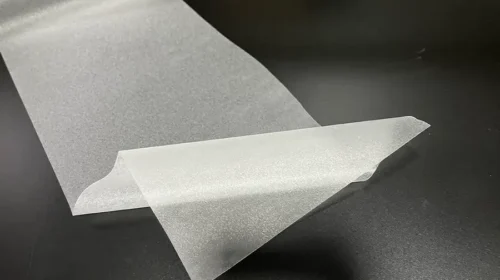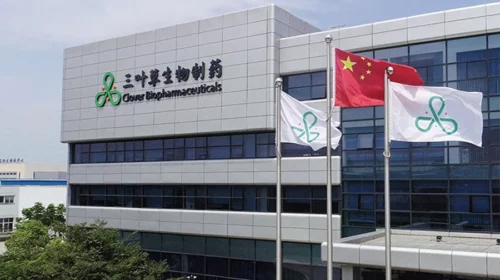Loss-making Vaccine Creator Luzhu Aims for IPO Booster Shot

The IPO-bound biotech is still developing its shingles vaccines and other antibody therapies, but the company has spent heavily in recent years on financial products
Key Takeaways:
- Losses of 1.26 billion yuan ($184 million) have been piling up at Luzhu Biotechnology over the past two years, with all its drugs still in the research or development phase
- The company has raised 688 million yuan in three rounds of financing but most of the proceeds were spent on financial products, raising questions about its strategy
By Emily Chan
Ever since China abruptly lifted its anti-Covid measures in December, vaccine stocks have been struggling, especially after the virus passed its infection peak.
However, vaccine makers are still racing to raise IPO money to develop new drugs to fight Covid and other conditions. One of the cash-hungry hopefuls is Beijing Luzhu Biotechnology Co. Ltd.,which made a second application to list on the Hong Kong Stock Exchange on Feb. 13 after its first attempt lapsed last June.
Set up in 2001, Luzhu produced five commercial vaccines to prevent severe bacterial diseases such as meningitis. However, the company transferred all five bacterial vaccines to Chongqing Zhifei Biological (300122.SZ) in 2008, when it shifted to R&D in the field of human monoclonal antibodies, lab-generated proteins that trigger an immune response, and bispecific antibodies, designed to latch on to two molecular targets to combat complex diseases. Now the company has three products in clinical trials and four at the preclinical stage.
The core product is a recombinant herpes zoster vaccine to block shingles, a painful condition caused by the chickenpox virus, in adults aged 50 or more.
The LZ901 shingles vaccine is expected to complete Phase II clinical trials in the first quarter of this year and start Phase III in the second quarter. If all goes smoothly, the company would seek marketing approval for the new drug from China’s medical regulators in the second quarter of 2024. The vaccine also started a Phase I clinical study in the U.S. earlier this month.
The other two products undergoing clinical trials are a dual antibody injection for B-cell leukemia and lymphoma, and a monoclonal antibody injection to treat rheumatoid arthritis as well as the spine condition ankylosing spondylitis and the skin disorder plaque psoriasis.
The four preclinical products in development include another shingles vaccine, a rabies shot and antibody injections for myeloid leukemia and B-cell lymphoma.
Losing nearly 1.3 billion yuan
With all its therapies still at the R&D stage, Luzhu does not have any products approved for commercial sale, nor any revenue, except for the proceeds from leasing its facilities or selling test kits, and money from government grants or bank interest.
The balance sheet is therefore bright red. Luzhu made 6.90 million yuan in revenues in 2021, rising to 13.92 million yuan the following year, according to the preliminary prospectus. Losses for the same period were 539 million yuan and 725 million yuan, a total of 1.26 billion yuan. The losses came mostly from administrative expenses, R&D and fair-value losses on financial liabilities, with the last category alone coming to 441 million yuan and 552 million yuan for the two years.
The company said that the fair-value loss mainly stemmed from preferred shares issued in its Series A, B, B+ and C financing rounds. No additional fair-value financial loss is expected to arise after the liability relating to special rights granted to investors was terminated in June 2022, it said.
It is worth noting how Luzhu has spent the 688 million yuan it raised in financing rounds over the past two years. Only 42.98 million yuan and 91.43 million yuan was spent on R&D over the two years, while its financial assets at fair value amounted to 532 million yuan and 513 million yuan. In the prospectus, the company said proceeds from three financing rounds had been invested in financial products and that any future cash surplus could be similarly invested if potential returns were attractive. The emphasis on financial investment could raise questions about the company’s business focus.
Expenses mount up
Moreover, Luzhu predicts a bigger net loss this year, mainly due to mounting R&D spending as its products move through the pipeline. Since its core product, the LZ901 shingles vaccine, started Phase II Chinese trials last April, R&D spending has doubled from the prior year and is expected to keep rising when Phase III begins.
Luzhu is set to apply for a biologics license for the shingles vaccine in the third quarter of 2024. The company is expected to build a commercialization team around the third quarter of next year while also seeking a sales partner to drive marketing in China and to increase market penetration.
Clearly, a sharp rise in marketing costs is around the corner. Meanwhile, the company also plans to build new R&D and manufacturing facilities in Beijing and Zhuhai. It has also begun exploring partnerships with third parties for licensing in markets outside China. But with less than 69 million yuan in cash and cash equivalents left at the end of last year, Luzhu needs to fill its pockets with IPO cash.
Once fully tested and approved, Luzhu’s LZ901 shingles vaccine will enter a market that already has several rival options available. Four vaccines for herpes zoster, or shingles, have been marketed worldwide, namely Zostavax from Merck & Co. (MRK.US), Shingrix from GSK Plc (GSK.L), SkyZoster produced by SK Chemicals (006120.KR), and a live attenuated vaccine from Changchun BCHT Biotechnology (688276.SH). The products already cleared for sale in China include Shingrix and BCHT Biotechnology’s vaccine, which won marketing approval in January.
With Luzhu unlikely to gain marketing approval for its shingles vaccine before next year, the company is lagging behind in the race to deliver China’s first such preventative therapy.
Luzhu is also trailing its main domestic competitor, BCHT Biotechnology, in financial terms, as it burns through cash while lacking product revenue and profits. The contrast between the two vaccine producers is stark. Luzhu had a post-investment valuation of about 4.42 billion yuan after its Series C financing in June, while its rival can boast a market capitalization of 25.5 billion yuan.
Luzhu may have to make a persuasive pitch to investors about the prospects for its vaccines and antibody therapies if it wants a vote of confidence from the market.
To subscribe to Bamboo Works weekly free newsletter, click here






